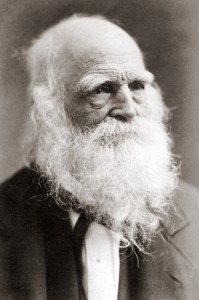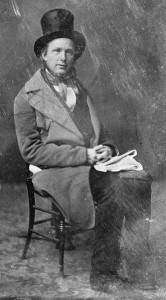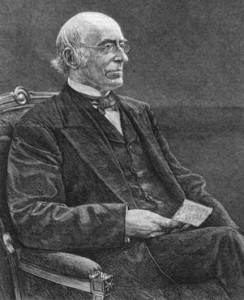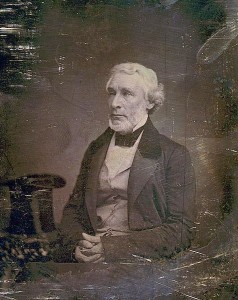From The New-York Times December 14, 1860:
THE CALCULATIONS OF SOUTH CAROLINA,; WHAT KEEPS THEIR COURAGE UP.
From the Charleston Mercury
ST. NICHOLAS HOTEL, NEW-YORK, Dec. 6, 1860.
Have been stopping here for a number of days; entered my name on the register, “from Maine,” which, was true, as a matter of fact, although my birthplace is in Alabama, and my present residence is Dale County, of the latter State. My object in so entering my name was to enable me better to get at the true sentiment of New-York in relation to the great secession movement going on among us. I hear many expressions of sympathy for us in this City, and in case of an attempt to coerce us, I believe we can safely rely upon much material aid from here, and especially from the Irish, they hate the nigger as they do the devil, and will fight to sustain our rights, if it finally comes to that. I am inclined, however, to the opinion that we shall be allowed to go quietly out of the Union, if the business is properly managed with the Federal Government. I have canvassed this subject as thoroughly as I can, with my facilities for doing so, and find a large majority of those with whom I have conversed, in favor of peaceable dissolution, if we are determined to go. The reasons which bring them to these conclusions, are as various as the factions to which they belong. The merchant and trader believe that if we are left to take our own course, that we will return to them to purchase our goods and sell our cotton — which to them is above all other considerations — but that if an attempt is made to coerce us, “even if they (we) are compelled to submit,” that it will engender such a feeling of hate that New-York will get no more trade from us. The Tribune portion of the Abolition party are full believers in the “irrepressible doctrine,” and think there will be no peace, so long as we remain in the Union, and following the cue of their Abolition high priest and philosopher, GREELEY, who furnishes more Abolition gospel than any other man in the country, takes that ground squarely, and advocates it in his paper, the Tribune. BENNET, of the Herald, is with us, and says we have no course left to us, out of respect to ourselves, but to go out of this detestable Union. He hates it as bad as any of us, and would rejoice to see it broken up. He has much influence with a certain class, and will, if it comes to a rapture, courage enlistments in New-York to fight the North. We can depend upon that.
The Garrisonian Abolitionists, of course, desire us to go, hoping thereby to stir up insurrection among the slaves of the South, but their number is so infinites simal it is not worth taking into account.
In fact, I know of only one man of great influence at the North, that is disposed to attempt to coerce the South, and that is WM.C. BRYANT, of the Evening Post, and his circulation and influence is not a tithe of that of GREELEY’s, who is, as I said before, entirely opposed to it. I beg to repeat, that it is my honest conviction that there is no need of any preparation for war; that it the South say they will secede, by their Convention, and appoint wise, resolute, and temperate men to negotiate with the General Government, that an arrangement can be effected without any war, or shedding a drop of human blood. I believe if we demand secession, that the North will force the Government to accede to our request. However much disposed we may be to defend our rights when defence is necessary, it seems an act of folly to precipitate a collision with the General Government when we can, by negotiation, get them peaceably to allow us to secede.
I beg your influence to help us peaceably out of the Union, if it can be done, for if it comes to a fight with the General Government, God knows where it will end. We shall find it much easier to get in than to get out of it.
It it comes to war, they expect to free all our niggers and turn them upon us. It is a stereotyped expression with them, that it “it comes to a fight, it is the end of Slavery.” Violent attempts will be to stir up insurrection among the slaves. And here I beg to caution the South about bringing back — until this question is disposed of — any more runaway niggers, for the, danger they will bring upon us is ten times more than their value — nay, we had better pay for them a hundred times over.
I have already made this communication twice as long as I intended. Trusting that you will excuse the liberty which I take in giving you my views, after a thorough observation of the state of the case from this stand-point, and hoping it may lead us to the attainment of our purpose in peace. I remain, your obedient servant, CHARLES C. SPENCER.
1) My first thought when I read this article: this is like Rush Limbaugh saying he’s considered the de facto head of the Republican party. I think the media of whatever political persuasion has a lot of influence, at least partly because of the power of ideas. This Southerner seems to think that the business concerns of the North together with a media that mostly wants the South and its slavery out of the Union can influence the federal government to let the South secede peacefully. That might work with James Buchanan, but what about Lincoln? Since his election he has not said too much. He’s mostly referred questioners to his speeches and the Republican platform. He is definitely against expanding slavery into the territories, but I don’t think he has specifically said what he’d do if a state actually secedes. Lincoln is the wild card that the southern letter writer is not taking into account. Soon Lincoln will probably become more vocal.
2) Speaking of the power of ideas, this writer is concerned about bringing back fugitive slaves because of their effect on a possible slave insurrection. This seems to line up with what a lady from South Carolina wrote her uncle: “No one dares to buy a servant, fearing lest he, in doing so, should be introducing upon his plantation one tinctured with the idea of freedom”.
3) As it turns out, the St. Nicholas Hotel was one of the targets of a Confederate plot in 1864.





This is a very revealing item. It’s particularly interesting that it was commonly said that war would be the end of slavery — prescient, since not only did the war end slavery, but by the end of the war about 10 percent of Union troops were black. While the fears of murderous insurrection weren’t realized, the slaves did indeed turn against their former masters in the end. And, despite what some revisionists are claiming, there were never more than a handful of “Black Confederates“.
Thank you for the interesting comment and link, Allen